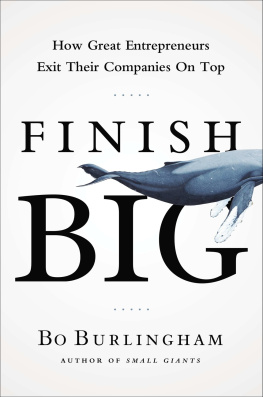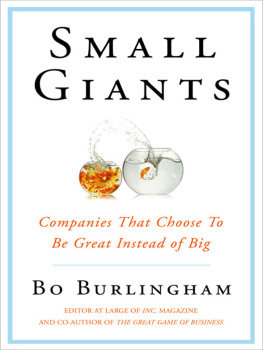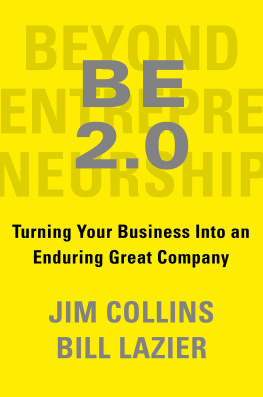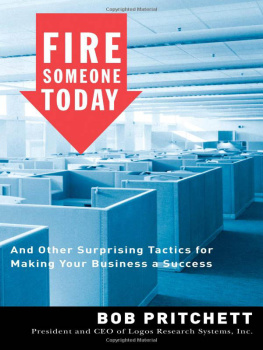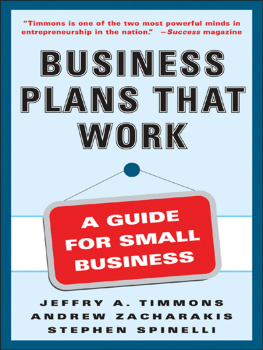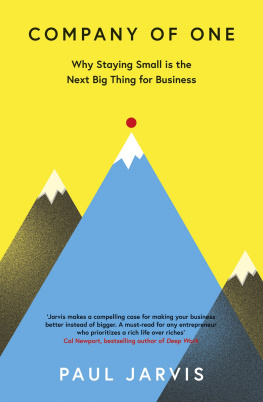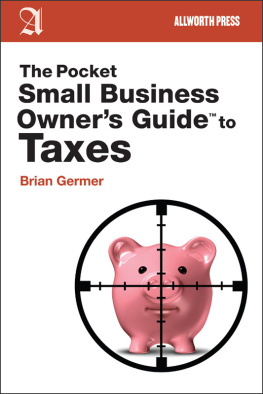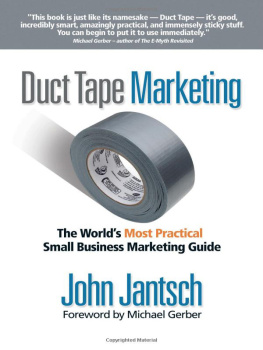USA | Canada | UK | Ireland | Australia | New Zealand | India | South Africa | China
First published by Portfolio / Penguin, a member of Penguin Group (USA) LLC, 2014
Penguin supports copyright. Copyright fuels creativity, encourages diverse voices, promotes free speech, and creates a vibrant culture. Thank you for buying an authorized edition of this book and for complying with copyright laws by not reproducing, scanning, or distributing any part of it in any form without permission. You are supporting writers and allowing Penguin to continue to publish books for every reader.
Burlingham, Bo.
Finish big : how great entrepreneurs exit their companies on top / Bo Burlingham.
Includes index.
1. ExecutivesRetirement. 2. ExecutivesResignation. 3. Sale of business enterprises. 4. Small businessPlanning. 5. Entrepreneurship. I. Title.
For Lisa, the love of my life; for Jake and Maria, Kate and Matt; and for Owen, Kiki, Fiona, and Jack, because family is everything.
INTRODUCTION
Are We There Yet?
Every entrepreneur exits. Its one of the few absolute certainties in business. Assuming youve built a viable company, you can choose when and how you exit, but you cant choose whether. Its going to happen. You can count on it.
That this simple fact of business life comes as a shock to many owners of private companies is in itself a testament to how little attention the final phase of the journey receives compared to other aspects of business. Do an online search for business marketing, finance, customer service, managing, or culture, and youll find oceans of information. Whats available on exits is a mere trickle by comparison, and almost all of it has to do with maximizing the amount of money you can get from a sale of your business. But there are many other aspects to the process and they play a larger role than the size of the deal in determining whether the exit has a happy endingthat is, whether you finish big.
Or so I have learned. When I set out to write this book, I didnt know much about exiting a business. Inc. magazine, where Ive worked for more than three decades, had paid scant attention to the subject over the years. My introduction to itand, I suspect, that of many Inc. readers as wellhad come from a series of columns I had written with veteran entrepreneur Norm Brodsky about an offer hed received for his records-storage business, CitiStorage. Norm and I have been doing a monthly column in Inc. called Street Smarts since 1995. (Weve also written a book of the same name.) While hed said on numerous occasions that he intended to sell CitiStorage someday, he enjoyed what he was doing so much that I imagined he was talking about the distant future. So I was taken aback when, in the summer of 2006, he told me he was in serious discussions with a potential acquirer.
He had recently attended an industry conference where he had met a partner in a private equity firm that had a significant stake in a competitor. The partner had asked Norm what it would take to get him to sell CitiStorage. Norm had named a price he thought was higher than anyone would pay. The partner didnt bat an eye. Norm had then said that, in addition to CitiStorage, an acquirer would have to buy two adjunct businessesa trucking company and a document-destruction company. That apparently was not a problem either. There had been a series of follow-up discussions. Norm told me he was waiting for the would-be buyer to send over a so-called letter of intent (LOI) outlining the preliminary understanding they had reached. He expected the LOI to be followed soon after by due diligencethe in-depth investigation that a buyer does prior to the negotiation of the purchase and sale agreement.
Norm wasnt sure where the discussions might lead, but he said this could be the opportunity of a lifetime. The money being discussed would be enough, not only to satisfy him and his two minority partners, but to share the wealth with his managers and employees. He also felt that the timing was right given his age, sixty-three, and the unusually high premiums being paid for companies like his in 2006. I told our editor at Inc., Loren Feldman, what Norm had said and he suggested we write about the offer in our column. When I relayed the suggestion to Norm, he said, Okay. Why not?
At the time, neither one of us had any idea what wed just signed up for. It turned out not to be a column but a series of columns. For the next nine months, we chronicled the unfolding drama in as close to real time as you can get in a monthly publication. Nothing similar had ever been done before or is likely to be done again. Even Norm admitted after the series ended that, when we started, he didnt really think the sale would happen. He said he wouldnt have agreed to do it if hed known in advance that wed wind up giving a blow-by-blow account of the negotiations to the entire world.
But once wed started, it was hard to stop, especially after it became clear that we were attracting a growing number of followers who eagerly awaited each new installment. At one point, Norm invited readers to send him advice about whether he should go through with the sale. Hundreds of e-mails poured in. People would stop him on the street or at conferences and ask him to share the latest developments that hadnt yet been published.
The saga took many unexpected twists and turns, the most surprising of which was the last one. After much thought and discussion, Norm had made up his mind to sell. The series had become so popular by then that Inc.s editor in chief, Jane Berentson, decided to announce his decision on the cover of the magazine. But just a few days before the contract was to be signed, he learned that the ultimate decision maker among the buyers was the person he trusted leasta crucial piece of information that the other side had failed to mention. That fact and its cover-up made him question whether he could depend on the acquirer to keep its promises about the treatment of his employees after the sale. To the astonishment of everyone, including Norm, he decided to walk away.
So ended the real-time magazine seriesbut not the story. Norm and his partners subsequently sold a majority stake in the business to a so-called business development company right as the economy was sliding into the Great Recession. Although many more twists and turns followed, they occurred out of the public eye. Meanwhile, the response to the series had made me realize there was an enormous gap in the business literature and it had to do with the experience of selling a business. That experience was clearly a huge unknown to many business owners.
It was new territory for me as well. Up to that point, Id had only a vague understanding of the exit process. Id never given much thought to the details of when, how, why, or what it felt like. In my mind, the exit was simply an event that marked the end of a journey. I had always been more interested in what happened during the journeythe experiences people had, the discoveries they made, the obstacles they encountered, the joys and sorrows along the way. Id also tended to regard exiting as a choice, not a necessity. I associated it with cashing out, and I associated cashing out with giving up. I had written many articles and three books about entrepreneurs who didnt have the slightest interest in exiting their businesses, focused as they were on creating great, enduring companies. Some of these owners had walked away from nine-figure paydays rather than risk having their companies wind up in the wrong hands.

